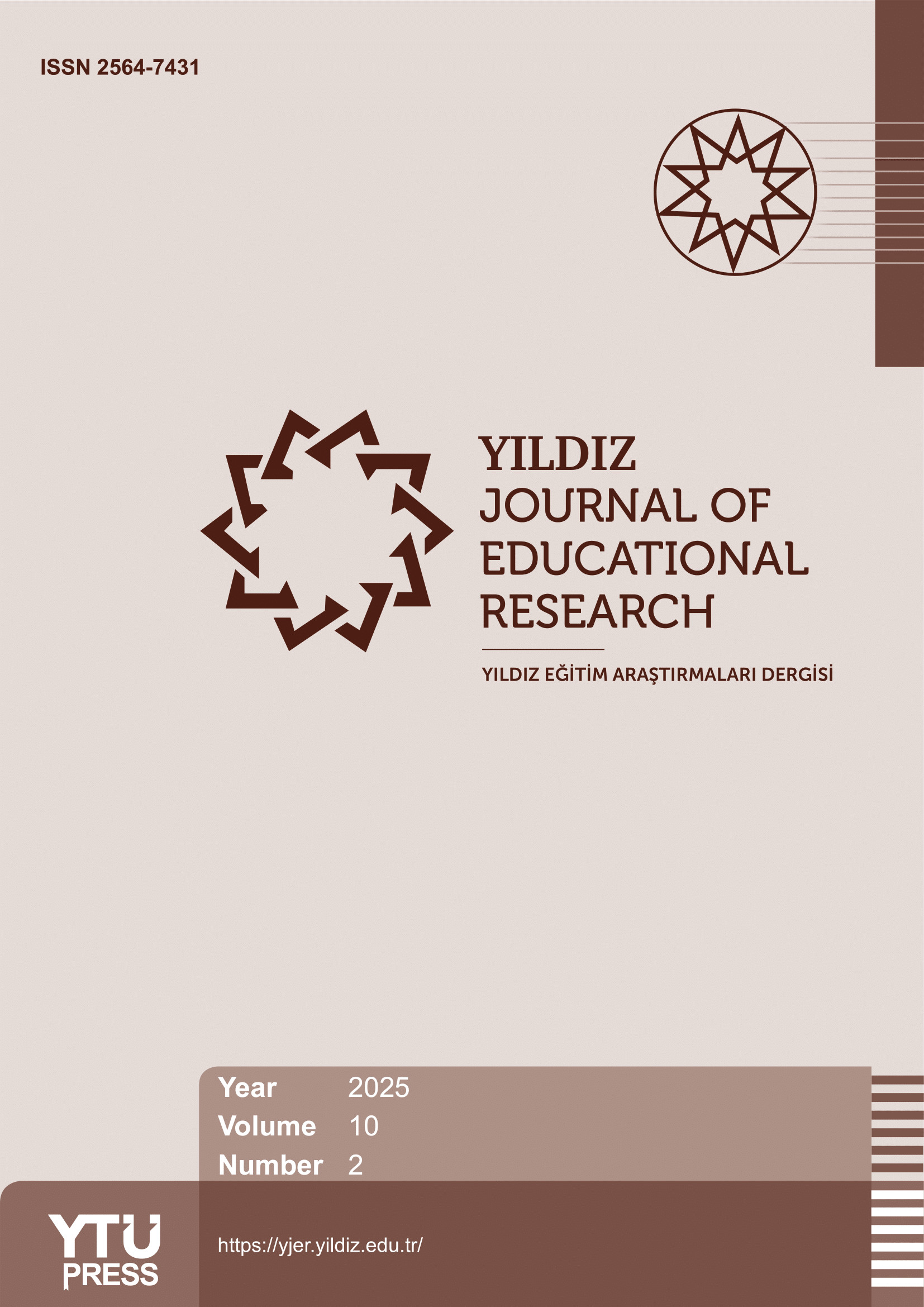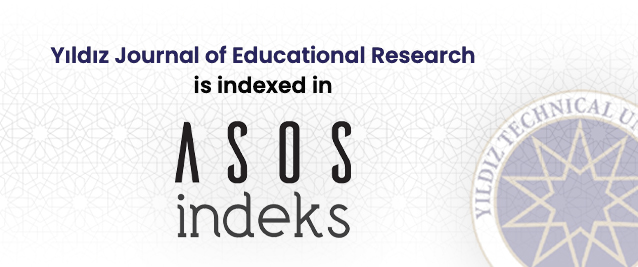Abstract
ABSTRACT
This study aims to determine the effect of the Fantastic Cubes game designed by the authors, which consists of unit cubes and a game booklet, on the spatial orientation skills and spatial ability self-report of 7th-grade students, and also to reveal the opinions of the students and their mathematics teachers about the game. The research study group consists of 43 seventh-grade students, 20 in the experimental group and 23 in the control group. In the experimental group, the Fantastic Cubes game was played for 5 weeks, one lesson per week. In the control group, the subject was explained with the traditional method. As a method in the research mixed research method was used. Therefore, as a quantitative research method quasi-experimental design; in terms of qualitative research methods, semi-structured interview forms were prepared. According to the results of the Spatial Orientation Test (SOT) (Z=.-1.1; p=.264>.05) and the Spatial Ability Self-Report Scale (SASRS) applied before the application (Z=.-305; p=.760>.05), it was determined that there was no significant difference between the mean rank of the groups, so the groups were accepted to be relatively equivalent in terms of dependent variables. According to the results of the SOT applied after the experimental application, there was a significant difference between the mean rank of the groups in favor of the experimental group (Z=-2; p=.037<.05) but the difference between the SASRP results was not significant ( Z=- 3.6; p=.715>.05). However, when the mean rank of the groups was examined, it was seen that the spatial ability self-report scores of the experimental group were higher than those of the control group. When the semi-structured interview forms were evaluated, the majority of the students stated that they liked the game, and nearly half of them stated that it changed their perspective on the objects. And the mathematics teacher of the experimental group found the game useful for the views of geometric objects from different directions in the semi-structured interview form applied. As a result of the interpretation of all the findings, it was concluded that the Fantastic Cubes game will affect students’ spatial orientation skills and spatial ability self-report.
Bu çalışmada yazarlar tarafından tasarlanan, birim küpler ve oyun kitapçığından oluşan Fantastik Küpler oyununun 7. sınıf öğrencilerinin uzamsal yönelim becerileri ve uzamsal yetenek öz- değerlendirmeleri üzerindeki etkisini belirlemek, ayrıca öğrenciler ve onların matematik öğretmenlerinin oyuna yönelik görüşlerini ortaya koymak amaçlanmıştır. Araştırmanın çalışma grubu, 20 deney 23 kontrol grubu olmak üzere toplam 43 yedinci sınıf öğrencisinden oluşmaktadır. Deney grubunda Fantastik Küpler oyunu, haftada 1 ders saati olmak üzere 5 hafta boyunca oynatılmıştır. Kontrol grubunda ise geleneksel yöntemle konu anlatımı yapılmıştır. Araştırmada yöntem olarak karma araştırma yöntemi kullanılmıştır. Dolayısıyla nicel araştırma yöntemi olarak yarı deneysel desen; nitel araştırma yöntemi açısından ise yarı yapılandırılmış görüşme formları hazırlanmıştır. Uygulamanın öncesinde uygulanan Uzamsal Yönelim Testi (UYT) (Z=.-1.1; p=.264>.05) ve Uzamsal Yetenek Öz-Değerlendirme Ölçeği (UYÖDÖ) sonuçlarına göre (Z=.-305; p=.760>.05) grupların sıra ortalamaları arasında anlamlı bir farklılık olmadığı belirlenmiş, bu nedenle gruplar göreli olarak bağımlı değişkenler bakımından denk kabul edilmiştir. Deneysel uygulama sonrasında uygulanan UYT sonuçlarına göre ise grupların sıra ortalamaları arasında deney grubu lehine anlamlı bir farklılık olduğu (Z=-2; p=.037<.05), UYÖDÖ sonuçları arasındaki farklılığın ise anlamlı düzeyde olmadığı (Z=-3,6; p=.715>.05) belirlenmiştir. Ancak grupların sıra ortalamaları incelendiğinde deney grubunun uzamsal yetenek öz-değerlendirme puanlarının, kontrol grubuna göre daha yüksek olduğu görülmüştür. Yarı yapılandırılmış görüşme formları değerlendirildiğinde ise öğrencilerin çoğunluğu oyunu sevdiğini, neredeyse yarısı da nesnelere bakış açısını değiştirdiğini belirtmişlerdir. Öğretmen ise formda oyunu geometrik cisimlerin farklı yönlerden görünümleri için faydalı bulduğunu belirtmiştir. Elde edilen bulguların yorumlanması sonucunda Fantastik Küpler oyununun öğrencilerin uzamsal yönelim becerileri ve uzamsal yetenek öz-değerlendirmeleri üzerinde etkili olacağı sonucuna ulaşılmıştır.













